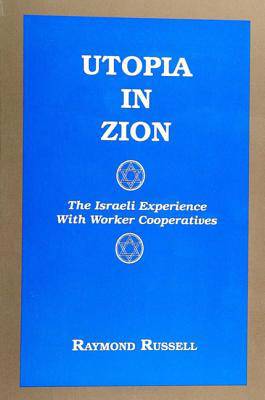
Bedankt voor het vertrouwen het afgelopen jaar! Om jou te bedanken bieden we GRATIS verzending aan op alles gedurende de hele maand januari.
- Afhalen na 1 uur in een winkel met voorraad
- Gratis thuislevering in België
- Ruim aanbod met 7 miljoen producten
Bedankt voor het vertrouwen het afgelopen jaar! Om jou te bedanken bieden we GRATIS verzending aan op alles gedurende de hele maand januari.
- Afhalen na 1 uur in een winkel met voorraad
- Gratis thuislevering in België
- Ruim aanbod met 7 miljoen producten
Zoeken
€ 145,45
+ 290 punten
Uitvoering
Omschrijving
Although less famous than Israel's cooperative agricultural settlements, the kibbutzim and moshavim, Israeli urban worker cooperatives have an equally long and rich history. Well over a thousand such organizations have been established in what is now Israel since early in this century. This book provides a historical, social, and economic analysis of contemporary urban worker cooperatives, focusing on processes affecting their formation and dissolution, their use of nonmember labor, and the evolution of their democratic decision-making practices over time. Raymond Russell examines these cooperatives for the light they can shed on worker ownerships and worker cooperatives in general, and on Israeli society in particular. Applying a range of sociological and economic theories to examine the dynamics of these organizations over time, he finds that both their formation and their later development have been strongly influenced by the uniquely utopian social and economic conditions that prevailed in Jewish Palestine in the first half of the twentieth century.
Specificaties
Betrokkenen
- Auteur(s):
- Uitgeverij:
Inhoud
- Aantal bladzijden:
- 330
- Taal:
- Engels
- Reeks:
Eigenschappen
- Productcode (EAN):
- 9780791424438
- Verschijningsdatum:
- 1/07/1995
- Uitvoering:
- Hardcover
- Formaat:
- Genaaid
- Gewicht:
- 616 g

Alleen bij Standaard Boekhandel
+ 290 punten op je klantenkaart van Standaard Boekhandel
Beoordelingen
We publiceren alleen reviews die voldoen aan de voorwaarden voor reviews. Bekijk onze voorwaarden voor reviews.












